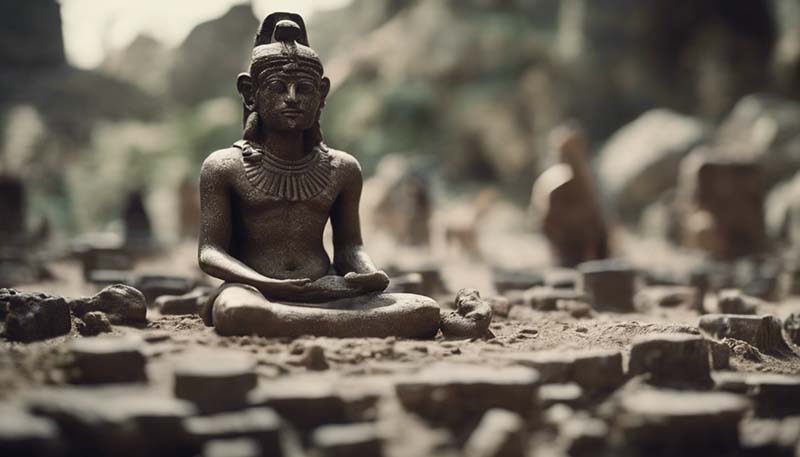Archaeology is the study of human history through the excavation of artifacts and the analysis of ancient structures. It serves as a bridge between the past and the present, allowing us to understand the complexities of ancient civilizations that have long since vanished. This article will delve into the methodologies and discoveries of archaeological research, highlighting how they have reshaped our understanding of the ancient world.
**Outline**
1. **Theoretical Foundations of Archaeology**
- The development of archaeological thought
- Different schools of archaeological theory
2. **Methods and Techniques**
- Excavation and survey methods
- Laboratory analysis of artifacts
- Use of technology in modern archaeology
3. **Cultural Artifacts and Their Significance**
Advertisement
- Pottery, tools, and weapons
- Architectural remains and their cultural implications
- Writing and inscriptions as historical records
4. **Case Studies of Significant Discoveries**
- The discovery of Troy and its impact on Homeric legends
- The unearthing of Pompeii and the insight it provides into Roman life
- The decipherment of the Rosetta Stone and its role in understanding Egyptian hieroglyphs
5. **Bioarchaeology and Human Remains**
- Ethical considerations in the study of ancient human remains
- Insights into ancient health, diet, and lifestyle
- DNA analysis and its contribution to understanding population movements and genetic ancestry
6. **The Role of Archaeology in Contemporary Society**
- Archaeology as a tool for cultural heritage and identity
- The impact of archaeology on historical narratives and education
- Archaeological tourism and its economic implications
7. **Challenges and Controversies**
- Looting and the illegal antiquities trade
- The politics of archaeology and the repatriation of cultural property
- Climate change and its threat to archaeological sites
8. **The Future of Archaeology**
- Emerging technologies and their potential for discovery
- The importance of interdisciplinary collaboration
- The role of public engagement and education

**Introduction (Expanded)**
Archaeology is often seen as a romantic pursuit, one that involves the thrill of discovery and the unveiling of long-lost secrets. It is a discipline that combines the meticulous work of a historian with the adventurous spirit of an explorer. The archaeologist\'s spade and trowel have revealed the grandeur of ancient empires, the sophistication of ancient technologies, and the intricate social structures that governed the lives of our ancestors.
By examining the remnants of the past, archaeologists have been able to piece together a more complete picture of human history. From the intricate mosaics of ancient Roman villas to the towering pyramids of the Egyptians, each discovery adds a new layer to our understanding of the ancient world. Through this article, we will explore the intricate process of archaeological investigation and the profound insights it has provided into the lives of people who lived millennia ago.
Comments